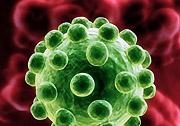Cancer risk with kidney transplants
Kidney transplant recipients are more than three times as likely to develop a number of cancers, according to UNSW research.
Kidney transplant recipients are more than three times as likely to develop a number of cancers, according to UNSW research.

Kidney transplant recipients are more than three times as likely to develop a number of cancers, according to UNSW research.
The research, which has been published in the prestigious Journal of the American Medical Association (JAMA), also indicates that many of these cancers are known, or are speculated to have, a viral cause.
"Our hypothesis is that in these patients, the cancers are related to infection," said the lead author, Dr Claire Vajdic, a National Health and Medical Research Council postdoctoral research fellow, based at UNSW's National Centre in HIV Epidemiology and Clinical Research (NCHECR).
Kidney transplant recipients are vulnerable to infection because of the immune deficiency caused by immunosuppressive therapy necessary to prevent organ rejection after transplantation.
The researchers looked at the cancer incidence in 28,855 people with end-stage kidney disease, of whom 10,180 had a kidney transplant. The work was based on records from the Australia and New Zealand Dialysis and Transplant Registry and the Australian National Cancer Statistics Clearing House.
"The surprising thing was the large range of cancers which were increased," said study Principal Investigator Professor Andrew Grulich, from NCHECR. "There were 25 different types of cancers which occurred to excess in kidney transplant recipients and 18 of those cancers were found at more than three times the rate of the general population."
The study, which was funded by the Cancer Council of New South Wales, found that many of the cancers occurring after transplantation were human papilloma virus-associated, such as those of the tongue, mouth, vulva, vagina and penis.
"The recent advent of effective antiretroviral therapies for the treatment of HIV infection has led to much longer survival from HIV, and our data raise concern that long-term HIV-related immune deficiency may also be associated with increased risk of a wider range of cancers," the authors wrote.
The researchers are now linking cancer statistics with the national HIV Register.
Media contact: Susi Hamilton, UNSW media unit, 9385 1583 or 0422 934 024